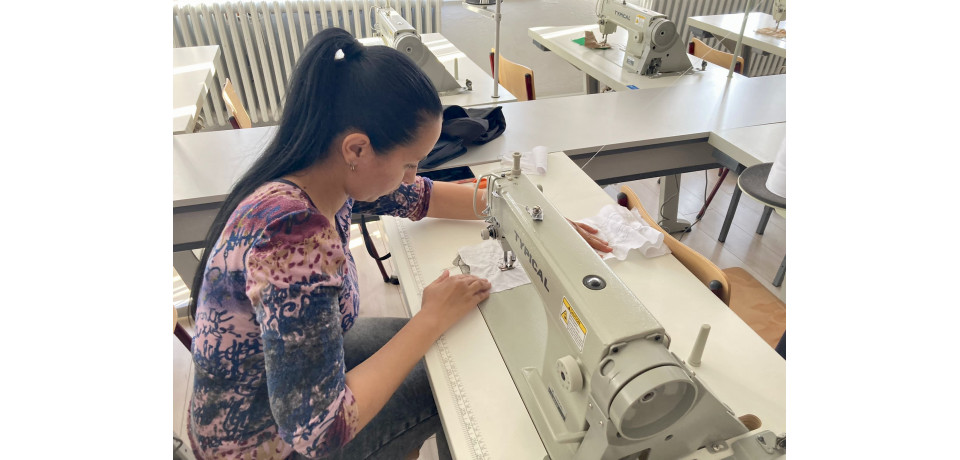Migration Stories from Serbia: Empowering Young Professionals and Jumpstarting Rural Economies
Objetivos de Desarrollo Sostenible Relacionados y Objetivos del Pacto Mundial sobre Migración
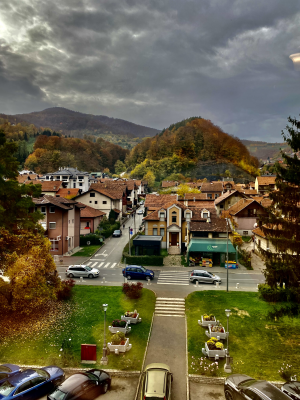
Within the IOM-UNDP Joint Global Programme of Making Migration Work for Sustainable Development (M4SD), three projects in local communities have empowered more than 420 young people to build their careers. In October, we got to hear some of their stories:
In Ivanjica, nearly 300 young people (60% women and 40% men) have benefited from the project so far. They improved their employment skills in areas such as computer literacy, English language, business management, 3D modeling and printing and Computer Numerical Control (CNC) machine operations. (Watch the project video)
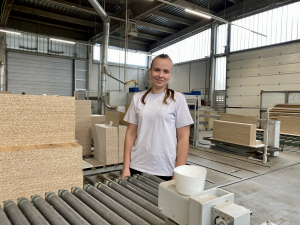
Milica is a young mother with two small children. She was looking for job opportunities that would suit her family’s daily routines, but has had a hard time finding an opportunity during COVID-19. After Milica took the CNC machine operating training, she was offered to work at Matis, a local furniture-making company. “I’ve been working as a CNC operator for more than a year now since I completed my training. My salary from this job mostly goes towards things for my children,” says Milica. “I would like to grow in other areas in the company in the future, like team management,” she adds.
According to the research recently carried out in Ivanjica, CNC machine operating is one of the major skills in demand from local companies with open job opportunities. Training on CNC machines and other related skills helps young people find jobs in local companies and eventually establish themselves in their communities, without necessarily having to move away to find a job.
In addition to CNC training, the Ivanjica Youth Office (with the support of the M4SD Programme) also conducts training in other subjects to meet local youth’s needs and interests. Miloš and Dušan are two teenagers who just graduated from the local high school. They were applying for university, majoring in IT, when we met them.
“This training is a good match for me because this is what I want to do for my career, and I also want to pursue further study in this area in university,” says Miloš who participated in IT training.
In Prokuplje, in addition to similar training courses, the project has also supported the local Technical School Training Center with new training equipment, including a new textile classroom, machines, computers and more.
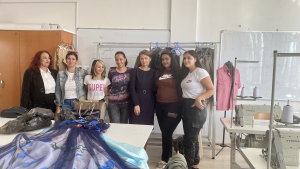
“In the future, after this Programme ends, we will still continue to support young people using this new equipment. There are more and more businesses coming to the town and investors are setting up in the empty land - mostly companies such as metal factories - so the CNC machines will help train youth to come in these jobs in the future,” says Milan Arandjelovic, Mayor of Prokuplje.
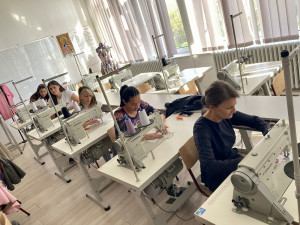
A key success factor of this project is that it also adopts an inclusive approach that encourages young people from the Roma community to participate in the training courses. The close cooperation between the local Technical School, Roma Association and the Local Self Government of Prokuplje brings community members together.
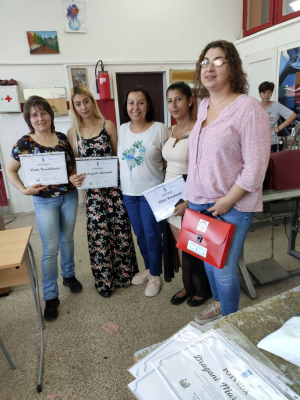
In Knjaževac, the project brings together local businesses, the Technical School, the National Employment Service and the Local Self Government. A Training Centre has been established at the Technical School for both machinery practice and theoretical exercises. As of November 2022, 70 young people completed skill training:
- 40 in tailoring and sewing (4 in 5 students are women)
- 30 in machine operations (1 in 3 students is a woman)
- Watch the project video
Selena is a student at the Training Centre, who completed the tailoring training. She previously completed courses in tourism and rural development, and she wanted to combine her knowledge in these areas and her tailoring skills to start a business.
“The training went well. We had good mentors, and they were very committed. We learned things from setting up the needles to sewing. The certificate I acquired after the training course means a lot to me because this job is in high demand,” says Selena. She adds, “I want to make souvenirs for tourists and sell my products online or at markets.”
The three projects, implemented in Ivanjica, Prokuplje and Knjaževac, respectively, adopt a whole-of-community approach to promote opportunities for unemployed young people through vocational skill training, career counselling, internship placement and business management training.
In Serbia, the projects are working towards creating more opportunities for young people in their hometowns, so that every young professional has a chance at success wherever they live. By addressing SDG 1 (no poverty), SDG 4 (quality education) and SDG 8 (decent work), the hope is that more people will remain in small or medium-sized cities like Ivanjica, Prokuplje and Knjaževac and continue to see local economies and social bonds thrive.
The current youth empowerment projects in Serbia are implemented within the framework of the Global IOM-UNDP Joint Programme on Making Migration for Sustainable Development (M4SD) funded by the Swiss Agency for Development and Cooperation (SDC). The Programme is implemented in 11 countries, including Serbia, and aims to harness the development benefits and reduce the negative effects of migration for host and home communities, migrants and their family members.
*All photos were taking by IOM and UNDP M4SD programme staff in 2022
